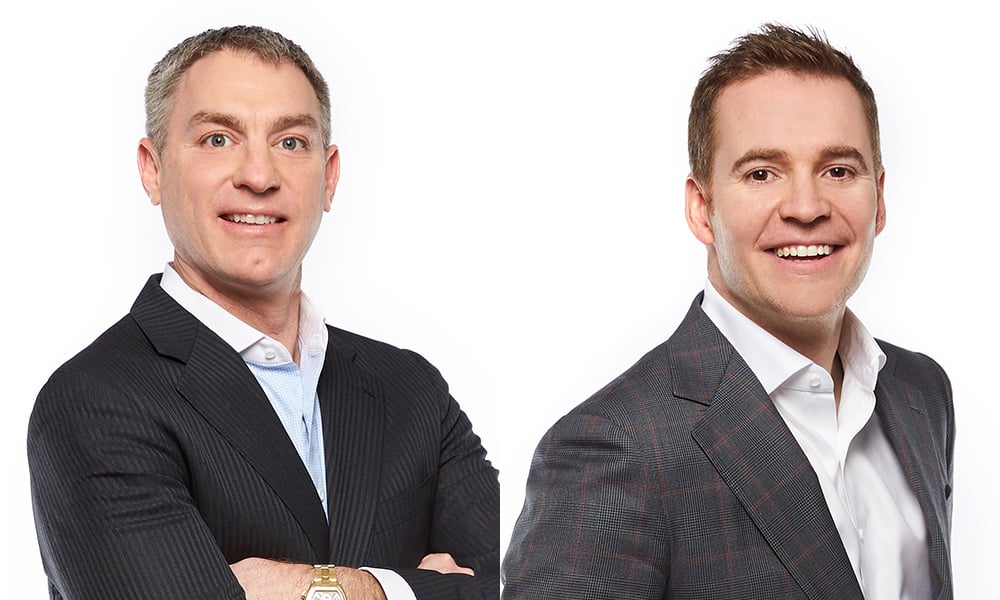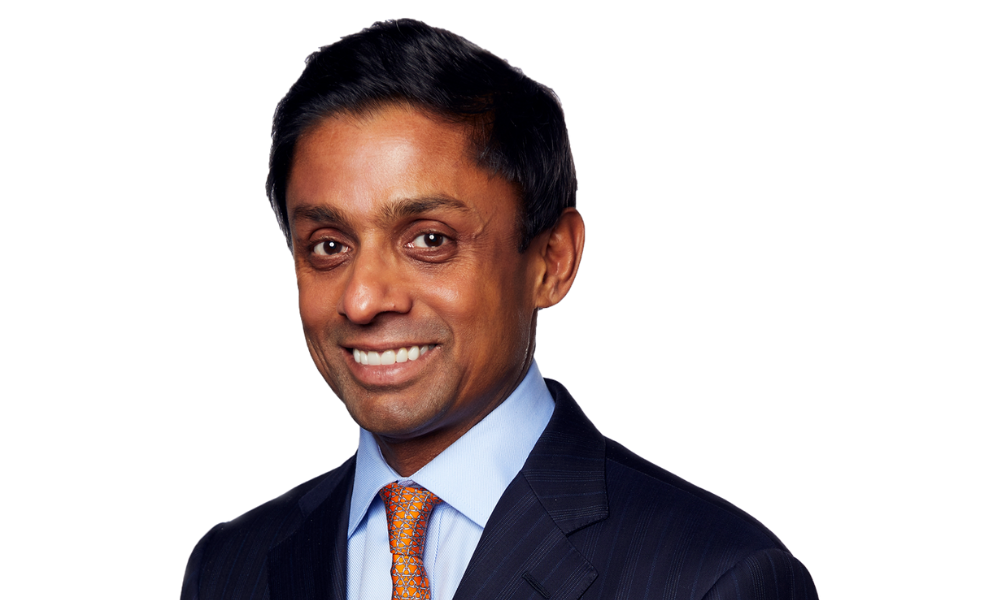Top advisors shine a light on the financial realities and planning considerations for the healthcare professionals they serve

For the vast majority of Canadians, the past two years of pandemic living has been a great pause that’s allowed them to reflect on their life priorities; some people have even had an opportunity to test-drive their plans for retirement. But while medical professionals have had to keep working in the front lines, that hasn’t stopped at least some of them from taking stock as well.
“I think everyone has come to realize that they are only here for a limited time, and questioning how many years they really want to stay at work,” says Andrew Feindel (pictured above, right), Portfolio Manager and Wealth Advisor at Richie Feindel Wealth Management with Richardson Wealth. “The government talks about 65 years old as being the retirement age. But I know a lot of the professionals we work with are very successful and certainly have the option of retiring in their 50s.”
Feindel and his business partner, Kyle Richie (above, left), run a financial planning practice that caters to people in the medical profession. That’s given them a backstage view into the realities that healthcare professionals have lived through over the past several years.
Because they provide an essential service, doctors haven’t had the luxury of working from home during the pandemic. Throughout multiple waves of Covid-19, limited, overworked manpower has been a recurring theme across many medical establishments, leading to an increased risk of burnout. For some specialists like orthopaedic surgeons, Feindel says the great number of Covid cases in hospitals meant a lot of cancelled and changed appointments which impacted their earnings.
“I can think of quite a few dentists who decided to sell their practice at an earlier stage,” Richie says. “Historically, based on the evidence I’ve read and conversations they’ve started with us, they tend to have a higher burnout rate than doctors.”
Over the past two years, Richie and Feindel have seen an evolution in the selling of dental practices. They say that for many dentists, it wasn’t just burnout and Covid-related stresses that spurred interest to sell. Low interest rates typically translate to higher business valuations, and private equity firms have increasingly gotten involved in snapping up dental practices, which means it may be more profitable for some dentists to sell their practice now than it may be in the future.
Their other clients aren’t so quick to pull the trigger. As Feindel tells it, he’s having more meetings than ever where clients are asking about the possibility of retiring before they hit the age of 65 – and what it means for their retirement plan.
“Our job is not really to give much opinion on whether someone should retire early or not,” he says. “It's more about ‘This is what they want, this is how it looks. What’s the difference between them working an extra five or ten years in terms of their cash flow in retirement?’”
In studying the different retirement scenarios, Feindel says it’s crucial to think about the potential impact to government benefits, how they work, and the penalties clients might incur for taking them before they turn 65 years old. They also consider how to withdraw their various investments in the most tax-efficient manner.
“A good planner could look at a situation and make educated determinations,” Richie says. “A lot of doctors and dentists don’t have a pension. So, the question becomes, should they get income from their RRSP, which would be taxable? Should it be the TFSA, which isn’t, or non-registered bucket, which is only partly taxable? It could also come from their corporation, which they can draw money from in different ways – triggering gains, taking a salary, getting dividends, or extracting money from the capital dividend account – with different tax implications.”
That’s only part of the exercise. To account for longevity risk, Feindel and Richie also have to be mindful of certain assumptions, such as the required rate of return to achieve their desired retirement lifestyle and the asset allocation they’d need to accomplish their goals. That has been especially crucial given the recent surge in inflation, rising interest rates, and the ongoing war in Europe.
“We’ve been investing more of our clients’ assets in more real assets which we view as a good inflation hedge,” Feindel says. “On the planning side, we are adjusting inflation assumptions, using what-if scenarios projecting higher increases than what we have been used to.”
Financial planners are certainly familiar with how to make projections on portfolios, or using financial calculators to estimate how much retirement income someone could get given a certain size of their nest egg. But according to Richie, that’s a case of a little bit of information being a dangerous thing. The real keys are an extensive knowledge of the financial planning software and understanding the tax laws that are relevant to each client's situation.
“I think the best advisors survive in that realm, spending 90% of their time working with clients on their plan, as opposed to 90% of their time figuring out which is the next stock to pick or bond to pick,” he says.



